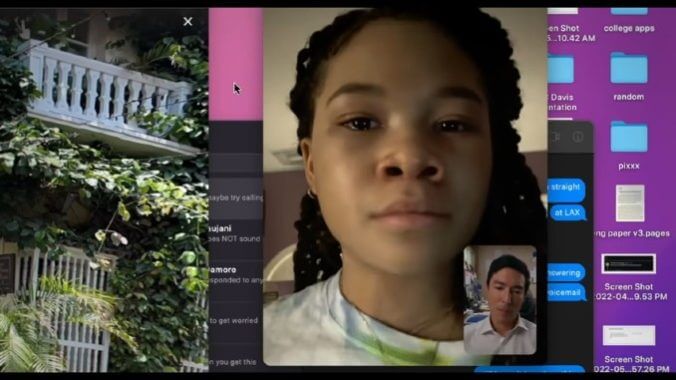Missing Tests Both the Cleverness and Plausibility of Screen-Life Thrillers

Missing and its earlier companion film Searching are mysteries, first and foremost—amateur detective stories so cozy, they barely need to leave the house. Both movies unfold using the “screen life” approach, a cousin to found footage where all of the action is depicted via the screens of computers and smartphones. When the audience sees a character’s face, it’s because the character is using video chat; when the audience receives exposition, it’s often through web browsing and file-opening. It’s a world of constant mediation, where every shot must be filtered through some kind of technology – which, of course, describes every movie. If anything, the more explicit parameters of this format can feel truer to our own self-imposed, digitally enabled limitations.
Yet a certain meticulousness is needed for a movie like Missing to retain its shape, and at times its structure resembles a well-calibrated comedy, where seemingly small details circle back around to become called-back plot points. In both cases, the audience will laugh in delighted recognition of the seeds that have been planted. Missing even has a winking, meta-comic relationship to its predecessor; early in the movie, it is revealed that the new movie takes place in a world where Searching was actually just a true-crime dramatization of unseen “real” events (John Cho, star of the first film, is referred to by name and seen in a clip). It’s clever, and cleverness is what Missing has going for it — which makes it all the more noticeable when it runs out. Suddenly, with 30 or 40 minutes to go, the movie’s architecture becomes all too visible.
The film starts out a lot like Searching, intentionally (and, yes, cleverly) so. June (Storm Reid) sits in front of her computer screen, seething at her overprotective mother Grace (Nia Long), and mourning the loss of her father, just as the teenage girl in Searching pined for her mother. June’s loss happened when she was very young, but she can re-live her faint memories through digitized videos, and feel connected to her dad by wearing his old Lemonheads t-shirt around the house. After flipping the single parent from father to mother, Missing then reverses the parent-child dynamic. Rather than the daughter disappearing, it’s Grace who goes on vacation to Colombia with her boyfriend Kevin (Ken Leung) and doesn’t come back when she’s supposed to. The international nature of her disappearance mires the investigation in bureaucratic red tape, so June takes it upon herself to internet-research her way into the case.
That’s the fun of these movies: watching the protagonists burrow their way into a twisty digital rabbit hole of hacked email accounts, suspicious photos, and unexpected odd jobs. One of the film’s biggest laughs (and it has plenty, mingling occasional gags with guffaws of delighted disbelief) comes from June’s realization that she cannot afford assistance from the most reputable-looking freelancer on a Colombian version of TaskRabbit. She settles instead for Javi (Joaquim de Almeida), a scooter-riding gofer who works as her on-the-ground contact in South America.
-

-

-

-

-

-

-

-

-

-

-

-

-

-

-

-

-

-

-

-

-

-

-

-

-

-

-

-

-

-

-

-

-

-

-

-

-

-

-

-








































